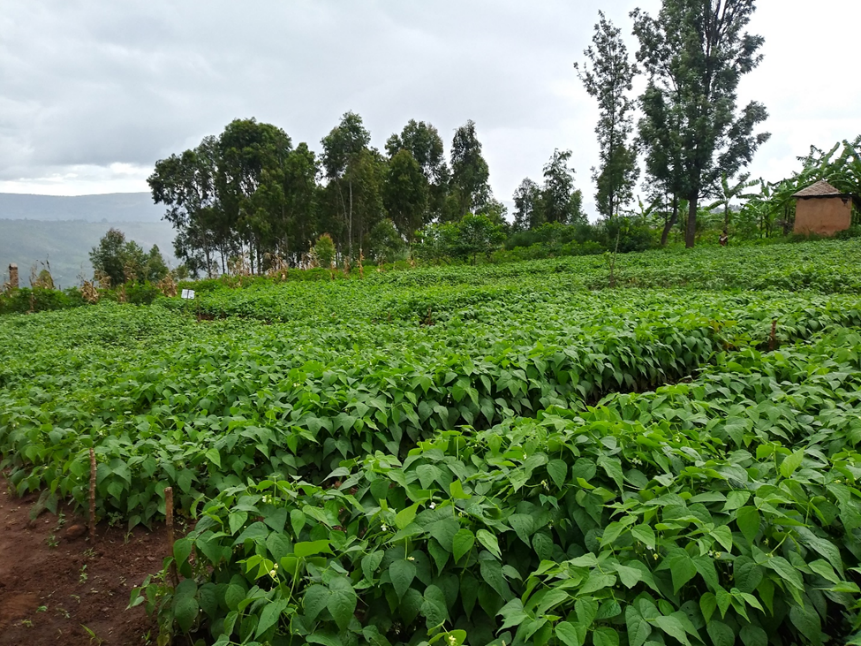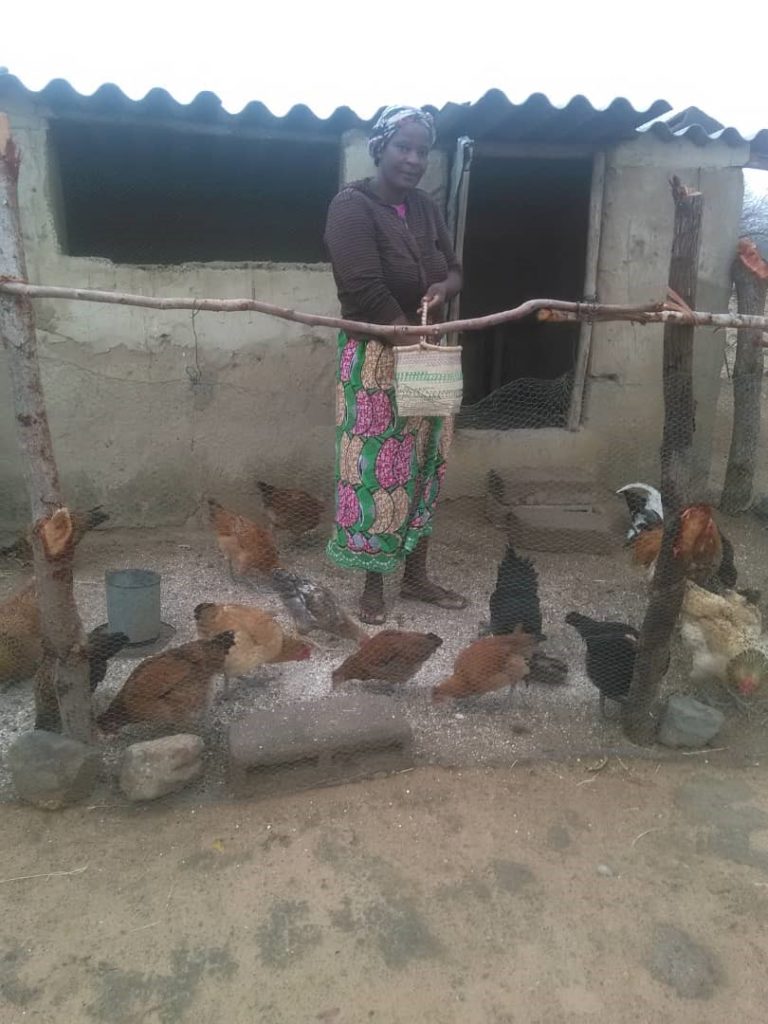By Nyarai Chisorochengwe
Agriculture is primarily the backbone of Zimbabwe’s economy. To cope with the sting of poverty, most people, especially women, have ventured into growing various crops and rearing chicken to improve food and nutrition security in their households. The most practiced farming type of farming is either dryland farming with one cropping season and irrigation with two to three cropping seasons.
Mrs. Pauline Bova, a 44-year-old woman, from Gokwe district in Midlands province of Zimbabwe practices dryland farming. She grows various crops on her one and a quarter hectare piece of land. Beans are grown on a quarter of a hectare, groundnuts on half a hectare, millet, and sorghum on a quarter of a hectare each. She complements her cropping by rearing roadrunner chicken. Mrs. Bova started keeping chicken in 2013 after she was trained by extension officers from the Agritex department in the Ministry of Agriculture.
She harvested her bean crop last season in April but could not sell the product due to the lockdown measure put in place to curb the spread of the virus. As an alternative source for money, she concentrated on her poultry project because she had a ready market from the neighbors. The project is keeping her busy. She has managed to sustain the poultry project because it requires little resources. The chicken thrives on natural food in the environment since they are a free-range variety.
She feeds the chicken with millet and sorghum as they grow. She uses the chicken droppings as fertilizer on her farm. When the chicks are two weeks old, she weans them so that the hens start laying eggs again. She does this to increase her flock size “The project is good because it keeps me busy, I don’t have time for gossip with the neighbors especially during this time of Corona.” she says. This project has helped her stick to the government measures on COVID 19 of social distancing.
Mrs. Bova says although she faced difficulties in selling her beans this season, she will continue growing them for food as well as nutrition security of her family while she sells her chicken which she can be able to sell at any stage of growth since they have a ready market locally. She hopes that when the pandemic is gone, she will be able to realize income from both the beans and chicken.


